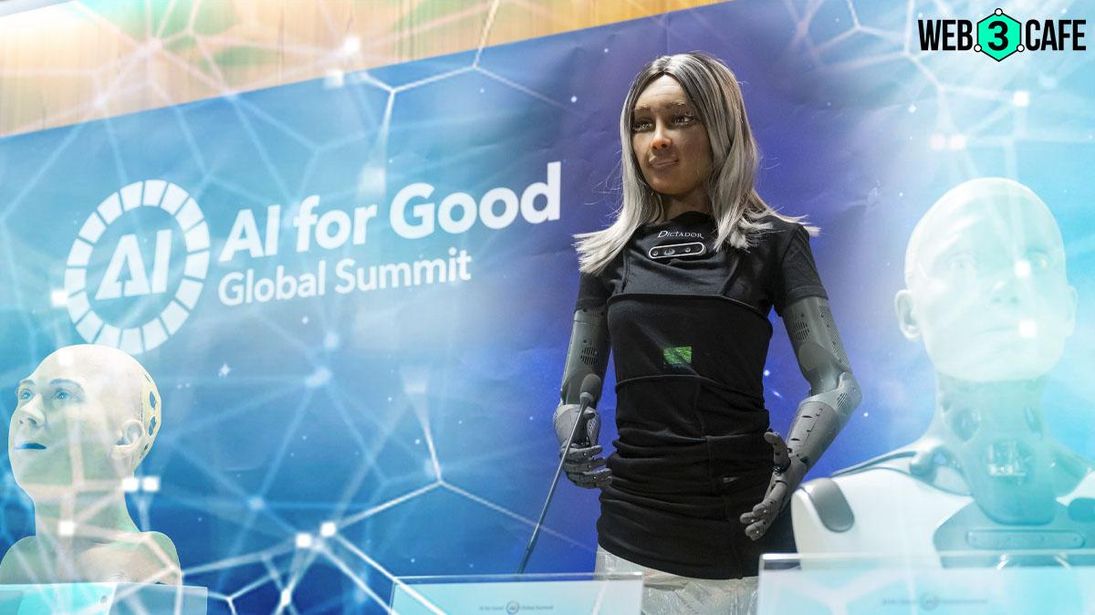‘Can become better leaders than humans,’ say AI-powered robots at Geneva press conference
The event is recognised as the world's first news conference featuring socially interactive humanoid robots where their inventors showcase their capabilities, limitations, and their contribution to the UN's sustainable development goals.
 artificial intelligence
artificial intelligence
Highlights
- World first AI citizen robot ‘Sophia’ participated as UNDP robot innovation ambassador
- The robots confidently expressed that they could be potentially more effective leaders than humans
- There were different responses from robots regarding questions over regulations on AI
In a groundbreaking press conference at Geneva ‘AI for good’ gathering, held by the United Nations International Telecommunication Union , a unique assemblage of humanoid robots captured the attention of reporters, initiating a thought-provoking discussion on the future of artificial intelligence.
This historic event, recognised as the world's first news conference featuring socially interactive humanoid robots, took place at a Geneva conference center. The purpose was to not only highlight the capabilities of robotics but also emphasise their limitations and potential contributions to the United Nations' sustainable development goals.
United Nations AI for Good Summit in Geneva hosts groundbreaking human-robot press conference.#ArtificialIntelligence pic.twitter.com/OqF34r0C0t
— It's Solved (@it_s_solved) July 10, 2023
Robotic innovations and their remarkable features
The conference featured nine robots, each with its distinct persona and purpose. Notable participants included Sophia, world’s first AI robot citizen, renowned as the U.N. Development Program's (UNDP) robot innovation ambassador, Grace, a dedicated healthcare robot, and Desdemona, an electrifying rock star robot.
Additionally, Geminoid and Nadine were fascinating creations that closely resembled their human makers. During the event, the robots' creators or companions introduced them, leading to a subsequent round of probing questions posed by the attending journalists.
Balancing prepared responses and human-machine collaboration
While the robots confidently articulated their perspectives—expressing that they could potentially be more effective leaders than humans without endangering job security or instigating rebellion—organisers did not disclose the extent to which the robots' answers were scripted or programmed by humans.
The summit aimed to underscore the importance of "human-machine collaboration," acknowledging that some robots rely on pre-programmed responses. For instance, the UNDP's Sophia occasionally depends on scripted replies created by a team of writers at Hanson Robotics, as indicated on the company's website.
Technical challenges and reflecting on AI advancements
Reporters were advised to speak deliberately and vocalise clearly when addressing the robots, while being informed that any delays in responses were primarily due to internet connectivity rather than the robots themselves.
However, occasional pauses, audio glitches, and slightly awkward or inconsistent replies ensued, highlighting the complexity of achieving seamless human-robot interactions. The event underscored the ongoing global discourse surrounding the rapid progress of AI systems, sparked by the introduction of ChatGPT—a sophisticated chatbot capable of comprehending and responding to human language with a deep understanding of syntax and semantics.


COMMENTS 0